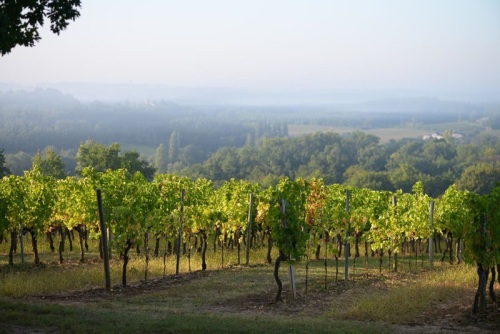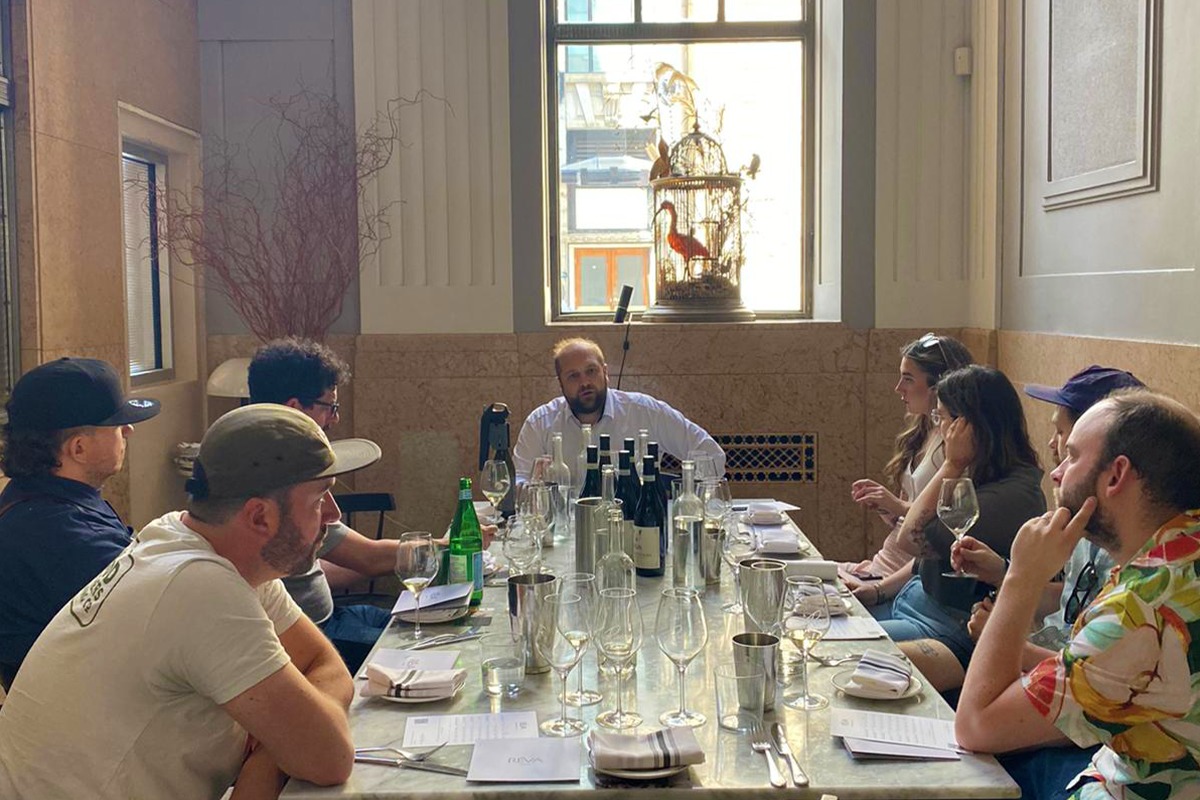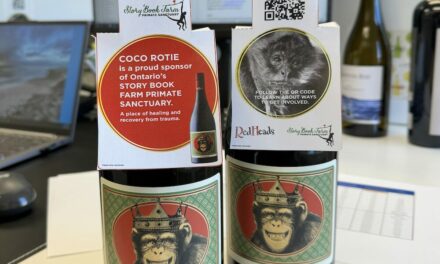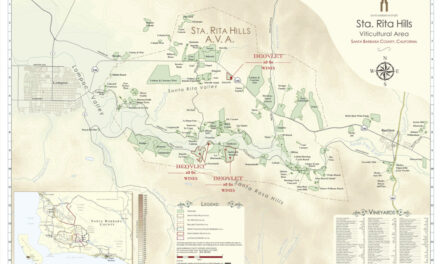Entre Deux Mers, located east of Bordeaux and 20km south of Saint Émilion, has a temperate, oceanic climate and terrain comprising a vast diversity of reliefs, exposures, and soils. Château Rouquette — one of the oldest estates in the region — is owned and operated by vigneron Christophe Widcoq, whose approach to wine growing begins with respect for the land; the domain has started its conversion to organics with the goal of being recognized by Bureau Veritas in France by 2024.
Today’s offer features two wines which received an amazing response when we first introduced Château Rouquette to the Ontario market, so we’re thrilled to be able to offer them again.
2021 ‘La Tour aux Palombes’ Bordeaux Blanc
“The Tower of the Pigeons” Made from Sauvignon Gris, a pink-skinned mutation of Sauvignon Blanc that is a rarity in Bordeaux, accounting for less than 1% of plantings. Fermented with indigenous yeast and matured on lees in stainless steel, this wine has bright, spicy aromas of lemon confit, green apple, and tropical fruit leading to a palate reminiscent of toasted spice, fresh peach, creamy pear, and beeswax.
Retail $25.95 / btl
2018 ‘Cuvée Lugrana’ Bordeaux Supérieur
The Supérieur designation implies a wine elevated from the standard of the basic regional appellation, requiring higher ripeness levels, higher density plantings and lower yields. This is a cuvée of Merlot, Cabernet Franc & Cabernet Sauvignon fermented with indigenous yeast and aged for 36 months in stainless steel. A fruit forward wine with aromas of black fruit, spice and violet. The palate is medium bodied, combining black cherry, licorice and dried herb with soft, youthful tannin.
Retail $25.95 / btl
Click HERE to order!
About Château Rouquette
The Domain, one of the oldest in the Entre Deux Mers region, can trace its history back to 1346 when the original castle was built. During the Hundred Years war (1337-1453) which was a series of armed conflicts between the English Royal House of Plantagenet and the French Royal House of Valois, the castle was destroyed. In the 17th century it was rebuilt and at the time the entire estate of over 1,000HA was one of the most important in the region. Over time, and with the French succession rules, the estate has decreased considerably and is now just over 82HA in size with 40HA given over to vines, and the remainder to forest and grassland.
Today, the estate is owned by Christophe Widcoq and together with his team they have developed a passion and respect for the environment. The estate is isolated, surrounded by forests. Effective from 2021, the domain has started its conversion to organics with the goal of being recognized by Bureau Veritas in France by 2024. Some of the elements introduced to achieve this certification include the removal of all plastic tags in the vineyards, natural fertilisers of cow manure and chicken droppings, planting fava beans and grasses between the rows of vines and the use of agroforestry, of all which is encouraging the local wildlife, native trees and grasses, birds, and insects. Many of these elements are reflected on the labels with images of wood pigeons, doves, swallows, and hares all displayed. The domain was recently expanded with the purchase of a small estate, 4HA in size, situated in the grand cru Saint Émilion appellation. The same rigorous environmental passion is displayed at Chateau Pontet-L’Eglise.
The winery has some modern touches that allow for greater emphasis on quality. Harvesting is done mechanically but with a very modern and very selective sorting tool on the machine which provides extremely ‘clean’ grapes. The grapes are then brought into a large spacious winery for further sorting, accepting only the very best. A variety of sizes of stainless-steel tanks ranging from 50 – 250HL are used for the vinification process and allow for individual parcels to be kept separate. A temperature controlled, underground barrel room receives the wine for aging in French oak (225L Bordeaux barrels) or concrete tanks where appropriate. This is a small property and winery where attention to detail is of supreme importance, with 150,000 bottles produced annually.







